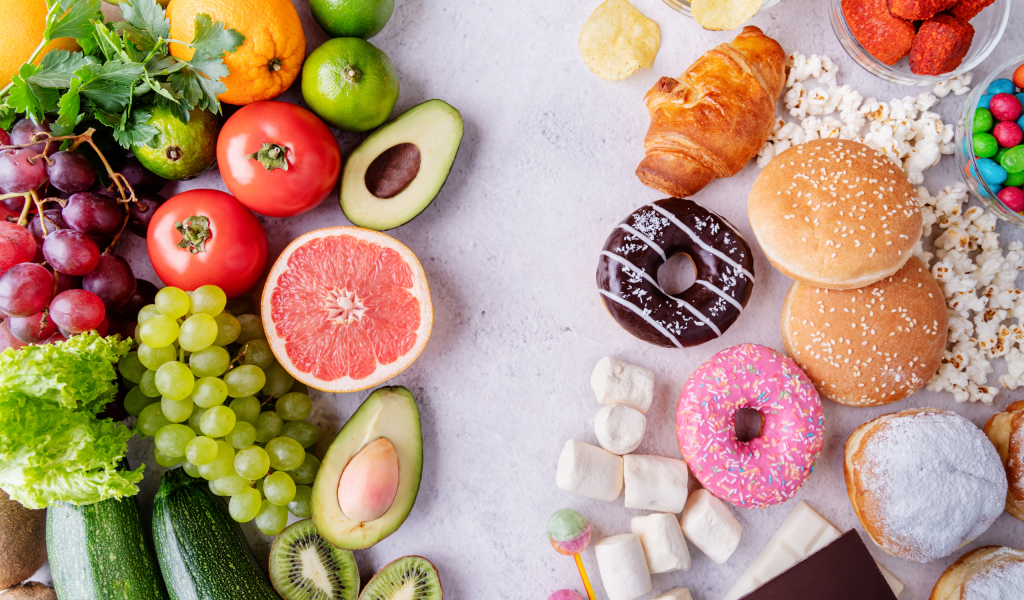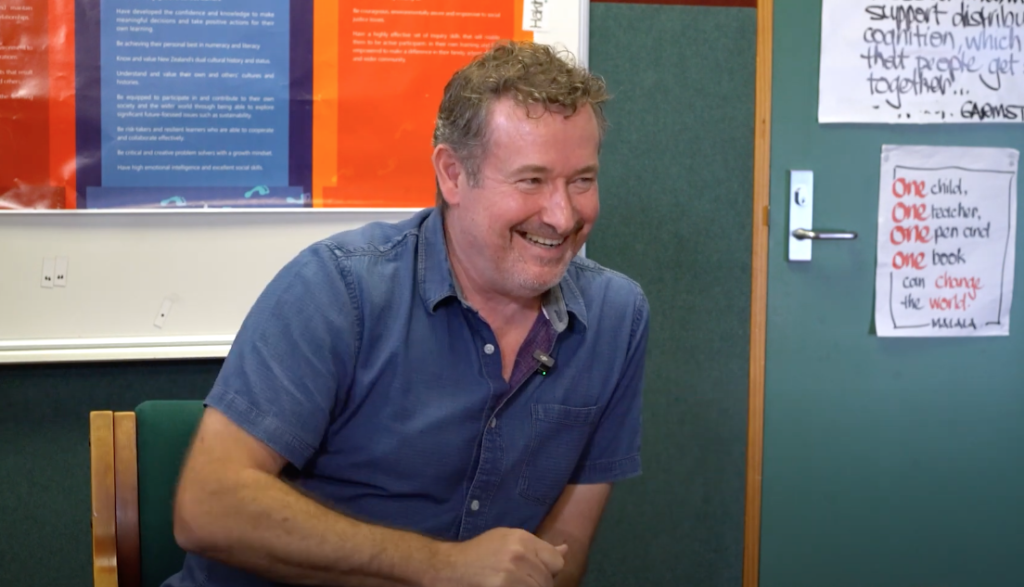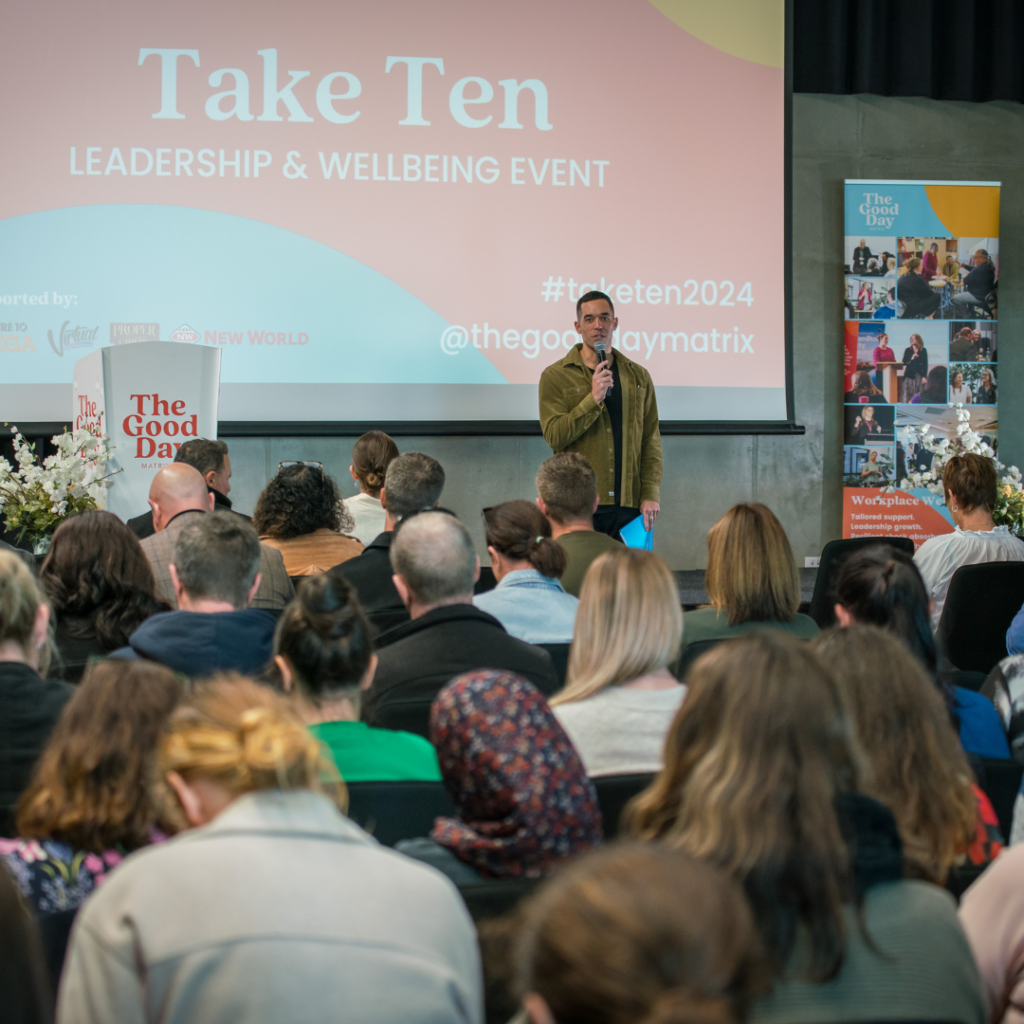Written by Dietician Sarah
Think of this as your Nutrition 101 run down!
What is healthy eating?
Everyone has their own idea or perception of what healthy eating is (let’s face it, everyone who eats food has an opinion on it). However, we are all different with different needs and therefore foods, people’s diets and ideas of healthy diets are all going to look a little bit different (and hopefully by the end of this, you will see that that’s ok!).
YOUR healthy
For some people eating healthy is counting calories and weighing foods or following a set of food rules, things they won’t eat, won’t do. For others, healthy eating is enjoying all foods in moderation and moving away from those food rules. Are either of these approaches to ‘healthy eating’ wrong? Nope! As long as they work for each person, they are fine.
Diets, trends, there’s so much to work through
There’s a big push to cut all sugar out of our diets, cook with certain oils, eat certain foods, go dairy-free, gluten-free, cut carbs, plant-based, keto… are all of these healthier options? Not necessarily. Food and nutrition is a blimmen’ minefield out there. There are some things we definitely know, our bodies do better on foods with minimal processing, lots of fruit and vegetables, whole grains and protein options (whether that be plant-based or meat-based). But that’s not to say that we can never eat sugar, dairy, gluten or have to adopt a plant-based diet.
By all means for someone that is dairy or gluten intolerant (either through allergies or intolerances) then a diet free of these foods is going to be their healthy. But if you are able to tolerate these foods there is no reason that eating them deems you to be eating an unhealthy diet.
The same goes for the recent uptake of plant-based eating. It is likely to be a healthier diet but someone who is including some plant-based foods and some meat is by no means unhealthier than those who are strictly eating a plant-based diet.
When we talk about healthy eating, I think it’s important to have a basic understanding of the macronutrients that are often thrown around.
So, think of this as a bit of nutrition 101…
Energy
Calories, energy, they’re terms used interchangeably but what do they mean? Calories or energy is the fuel that the food provides. Some foods are energy dense, such as fats (think oil, nuts, avocado, butter) and some foods contain very little energy such as vegetables. Energy is calculated based on the macronutrients that it provides such as fat, protein and carbohydrate.
Fats, good and ‘bad’
A controversial topic over recent years, should we be including more fat in our diets such as the keto diet or should we be continuing on as we are? There are different types of fats found in our foods and some are better than others. At the end of the day, our body needs some fat in the diet. You’ve all probably heard references to good and bad fats, but what exactly do they mean.
Let’s start with the good fats, these are the ones that we want to be including in our diet. These are our mono and polyunsaturated fats and our omega 3 fats (from fish). Our good fats are found in foods such as olive oil, canola, sunflower, safflower (most plant-based oils except coconut and palm oil), nuts and seeds, avocado and fish (particularly oily fish like tuna, salmon, and sardines).
Then we move on to saturated and trans fats. These are the fats found in butter, palm oil, coconut oil, fatty parts of meat, baking, fast foods, chocolate and pastries. These are not great for us and there is good evidence to show that eating lots of these will increase your risk of heart disease, stroke and diabetes. Now it’s not to say these foods are out completely but we shouldn’t really be eating them on a daily basis and when having them, try to enjoy them in small quantities.
Moving onto protein
There’s plenty of information out there to increase your protein intake, and consume a high protein and low carbohydrate diet. In actual fact, most of us do a pretty good job of meeting our protein requirements on a daily basis without needing to try to add in extra protein. Protein is essential in our diet (much like fats and carbohydrates) and they provide good sources of iron, calcium and essential amino acids and help with building muscles, tissues and cells in our body. Protein-rich foods include dairy products (or dairy-free alternative), eggs, lean meats, chicken, fish, legumes (lentils, chickpeas, beans, peas etc) and nuts and seeds.
Carbohydrates and sugars
Gosh they get a bad rap, don’t they!
Carbs- people love them and they hate them!
Should we be including them in our diets or should we be avoiding them like the dreaded lurgy?
Fact- carbohydrates and sugars are not all bad.
It all depends on the type of carbohydrate and sugar you are including in your diet. Some sugars like lactose, found in milk and milk products are good for us and these foods provide an excellent source of calcium and protein. The natural sugars found in fruits are also great as fruit provides us with fibre to help keep us pooing regularly and nourishes our gut bacteria and it also provides a whole heap of different vitamins and minerals.
It is the added sugar that you want to be aware of as these are usually found in calorie dense food or foods with empty calories (such as confectionary, fizzy drinks, cordials etc), meaning there’s really not much (if any) goodness in them to nourish our bodies. It’s also important to note that all types of sugar are still sugar whether it’s white, brown, raw, coconut sugar, honey, maple syrup, golden syrup, fructose or glucose. If you’re having a lot of them in your diet, it will contribute to your overall calorie intake. The aim is to try to reduce our overall intake of them.
But carbohydrates are our body’s fuel source, much like a car and petrol so we still want to be including them in our diet (and again, everything in moderation). The ones that we want to try and stay away from (most of the time) or limit, are the white, refined, more processed carbohydrates i.e. white bread, baked foods, pastry, biscuits etc. These have very little fibre and therefore less goodness than their higher-fibre counterparts. However, I will also be the first to say that some things do taste better on white bread and again this is ok as part of a balanced diet.
Where possible we want to try to include plenty of high-fibre, whole grain options of carbohydrates such as whole grain breads, brown rice, quinoa, oats, barley, rye, wholegrain wraps and breakfast cereals.
So that’s the macro’s, the building blocks of our diet and as you can see there are lots of different foods that you can include in your diet to make it YOUR healthy. Reading food labels will help you to choose the healthier options for those everyday foods (those that are not loaded with saturated fats, sugar and salt).
Where are the veges at?
You’re probably wondering where the vegetables come in as they haven’t been mentioned yet.
You can think of vegetables (non-starchy ones) as your free foods. They contain very little in the way of carbohydrate, protein and fats so you can basically eat them to your hearts content (which is what the food and nutrition guidelines recommend, you know, the 5+ a day).
Water-about water?
Most of this has been focused around food, but it is also important to think about what we should be drinking as well. When we talk about healthy drinks our most important one should be water.
Other fluids are fine to have but try to keep in moderation (although I’m sure for some of you, some days it is coffee after coffee to keep you functioning!!). Drinks such as fizzy drink, juices and alcohol provide us with empty calories meaning they don’t really give us much else in the way of nutrients. Again, it is not to say that these should never be consumed, we just don’t need them everyday or in great quantities.
More than just eating
Healthy eating is not just about what we are eating, it is also about how we are eating and why we are eating particular foods. Make sure you are taking the time to eat, make meal times a family affair, savour the flavour of foods rather than wolfing it down to move on to your next job or task and try to limit distractions such as eating in front of the tv.
Summary…whatever balance works for YOU
So, as you can see, there is no diet prescription for healthy eating. There are no hard and fast rules that need to be followed when it comes to what you eat. We have food and nutrition guidelines that set out what we should be eating and what we know is good for us but that doesn’t mean we need to eat this way 100% of the time.
A week on holiday where you’re eating out and straying away from your usual is not going to undo your usual healthy diet. Likewise, don’t feel bad and beat yourself up about enjoying an ice cream with the family, baking a cake for a weekend treat (and then eating some) or indulging in a glass of wine at the end of a long week! It’s all about balance, it’s all about moderation and most importantly, it’s about enjoying your food and enjoying life.
Because life really is too short to be sticking to food rules and getting hung up on everything that you consume.
Sarah xx













 Date: October – Clear your Friday’s!!
Date: October – Clear your Friday’s!!  Time: 9am – 1pm
Time: 9am – 1pm Location: Kirikiriroa
Location: Kirikiriroa